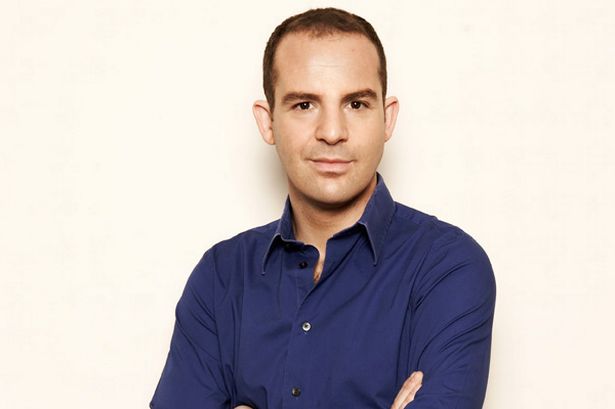Over-50s would trust the financial expertise of Martin Lewis more than that of financial advisers, a new study has indicated.
According to research conducted by LiveMore, more people would trust the advice of the financial expert and founder of MoneySavingExpert over banks and financial institutions, whose advice they often find “patronising, condescending and self-serving”.
LiveMore’s research was based on a study of more than 2,000 people between the ages of 50 and 90 years old. It found that when respondents were asked to say which financial advice they trust the most, the highest number (35%) put Martin Lewis top, above friends and family (30%) and their own online research (29%).
Bank managers were the least trusted, cited by just 15% of respondents, while financial advisers were cited by slightly more at 22%.
One in seven respondents (14%) said they feel like a “forgotten generation” when it comes to financial products. Some felt that the financial institutions were either not working on their behalf, did not have enough information for them or over-promoted certain products to ensure a sale.
LiveMore CEO, Leon Diamond, commented: “It’s become fashionable for the financial industry to criticise Martin Lewis but that’s because it’s threatened by him.
“His critics say he’s a journalist, not a financial expert, but whether they like it or not, he has consistently shone a light on an industry which is often less than transparent – and that has created a trust issue. When it comes to 50 to 90 year-olds, the findings of our survey show how stark that lack of trust has become with formal industry advice languishing near the bottom of the rankings.
“People are now looking to do their own research, they want to come to their own conclusions and, when they do so, the industry’s impenetrable language of rates and commission fees pushes them into the space owned by Martin Lewis – where the language is more transparent and where all the options are, frankly, explained more clearly.”
Diamond also suggested the mortgage industry’s preference for short-term rates has been a big part of the trust issue.
“In the US and Europe, 10, 15 or 30-year fixed rate mortgages are common,” he added. “While in the UK, the industry continues to work on short-term two or five-year cycles.
“We are at the end of the era of cheap money and, in increasingly uncertain times like these, paying a bit more for longer-term certainty has to be the right advice for a lot of people – particularly those aged 50 to 90, whose incomes are often based on more volatile pensions and savings.
“Our industry has to listen to these voices. It has to be about what’s best for the borrower.”
Latest News
-
FCA receives 281 whistleblowing reports in Q4 2025
-
First-time buyer mortgage pricing opening door to Bank of Family lending
-
Savers have ‘more choice than ever’, Moneyfacts reveals
-
Number of mortgages in arrears continues to fall
-
Commercial brokers’ ‘wish list’ goes unanswered – Asset Advantage
-
NatWest reports mortgage book growth
Perenna and the long-term fixed mortgage market

Content editor, Dan McGrath, spoke to head of product, proposition and distribution at Perenna, John Davison, to explore the long-term fixed mortgage market, the role that Perenna plays in this sector and the impact of the recent Autumn Budget
Mortgage Advice Bureau and AI in the mortgage sector
Chief executive officer at Mortgage Advice Bureau, Peter Brodnicki, and founder and managing director at Heron Financial, Matt Coulson, joined content editor Dan McGrath to discuss how Mortgage Advice Bureau is using artificial intelligence to make advancements in the mortgage industry, the limitations of this technology and what 2026 will hold for the market
NEW BUILD IN FOCUS - NEW EPISODE OF THE MORTGAGE INSIDER PODCAST, OUT NOW

Figures from the National House-Building Council saw Q1 2025 register a 36% increase in new homes built across the UK compared with the same period last year, representing a striking development for the first-time buyer market. But with the higher cost of building, ongoing planning challenges and new and changing regulations, how sustainable is this growth? And what does it mean for brokers?
Does the North-South divide still exist in the UK housing market?

What do the most expensive parts of the country reveal about shifting demand? And why is the Manchester housing market now outperforming many southern counterparts?
In this episode of the Barclays Mortgage Insider Podcast, host Phil Spencer is joined by Lucian Cook, Head of Research at Savills, and Ross Jones, founder of Home Financial and Evolve Commercial Finance, to explore how regional trends are redefining the UK housing, mortgage and buy-to-let markets.
In this episode of the Barclays Mortgage Insider Podcast, host Phil Spencer is joined by Lucian Cook, Head of Research at Savills, and Ross Jones, founder of Home Financial and Evolve Commercial Finance, to explore how regional trends are redefining the UK housing, mortgage and buy-to-let markets.
© 2019 Perspective Publishing Privacy & Cookies











Recent Stories